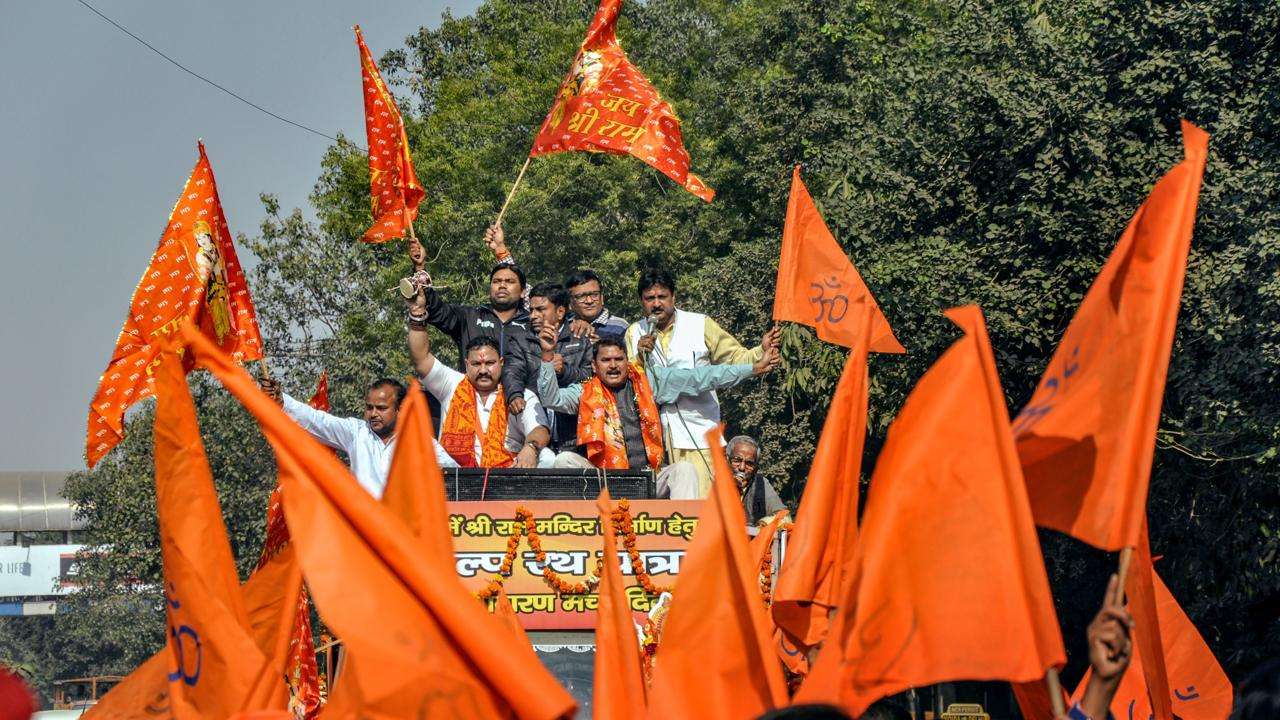Google left red-faced after 'Mandir Yahin Banega' indicator turns up over disputed site in Ayodhya

New Delhi: Rashtriya Swayamsevak Sangh (RSS) volunteers participate in Ram Rath Yatra from Jhandewalan Mandir, in New Delhi, Saturday, Dec. 1, 2018. , PTI
Google Maps users were in for a shock when a location indicator proclaiming ‘Mandir Yahin Banega’ appeared on the map of Ayodhya for a short while on November 30.
The marker was placed near the disputed site of Ram Janmabhoom-Babri Masjid in Ayodhya. The Hindu said that Google attributed 'unhelpful edits suggested by users'.
The slogan Mandir Yahin Banaayenger has been used right-wing outfits to underline their demand for the construction of a Ram Temple at the site.

BJP National General Secretary Kailash Vijayvargiya has said that his party was not thinking of bringing an ordinance "as of now" for construction of the Ram temple at the disputed site in Ayodhya.
It was a view first expressed by Amit Shah to Zee News.
He, however, asserted that it was only the saffron party that could construct the Ram temple at Ayodhya as "no one else has the guts" to do it.
According to him, the temple issue did "more harm than good" to the BJP as the matter was being used by the opposition "to terrorise minorities and polarise votes".
"We would appeal to the court once again for a verdict on the issue (Ram Mandir). When a matter is in court, we should not be in a hurry and give it enough time to take a decision.
"But if people's aspirations keep increasing, the government will have to take a call on it (whether to bring ordinance or not). As of now, the party is not thinking of bringing in an ordinance on construction of temple," Vijayvargiya told PTI in an interview.
The Supreme Court has recently declined an early hearing of petitions in the Ram Janmabhoomi-Babri Masjid title dispute case. It had earlier fixed the case for the first week of January before an "appropriate bench", which will decide the schedule of hearing.